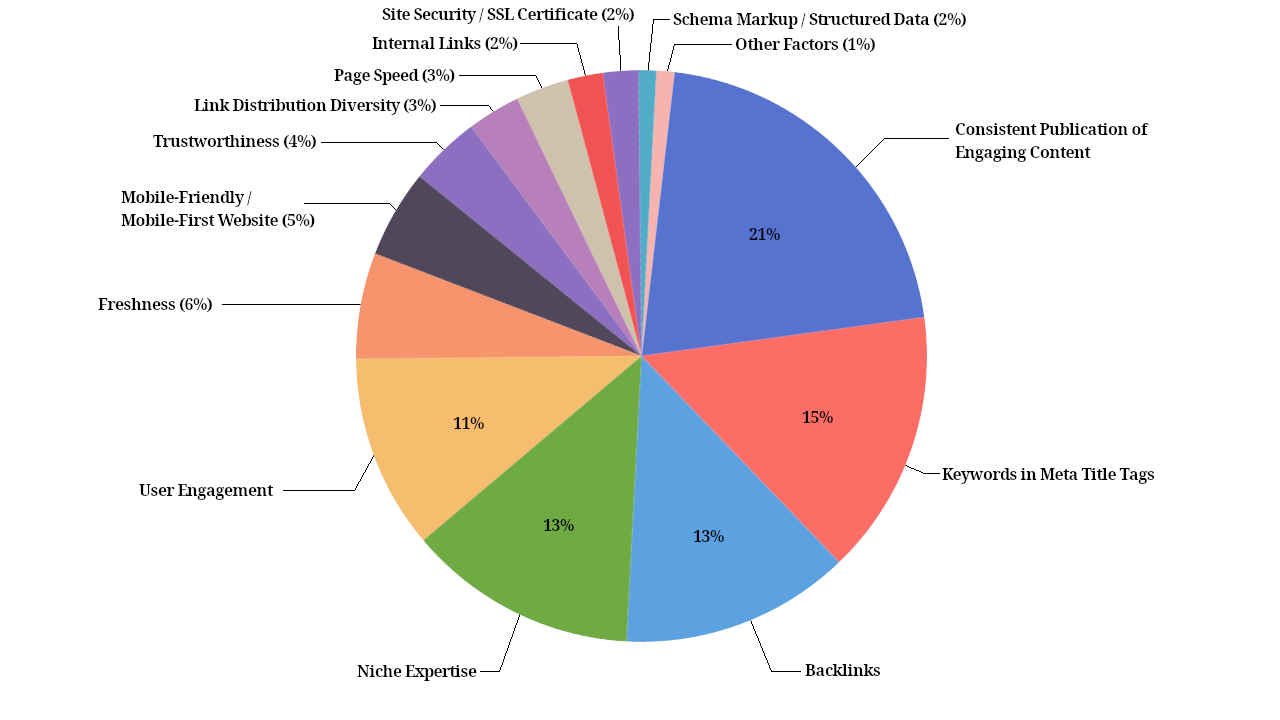Decoding Google's Latest Algorithm Update (Mar-Apr of 2024)


Want an engaging website?
Ever wondered why your website's Google ranking keeps changing? It's due to Google's constantly evolving algorithms.
Google's March 2024 Core Update, announced on March 5 and completed on April 19, was one of its most extensive and complex updates, taking 45 days to roll out. This update involved multiple core systems and underscores Google's focus on high-quality, user-centric content. Understanding these changes is crucial for managing your website effectively.
Changes in content evaluation
With the influx of content created by generative AI, this update aimed to reduce spammy content by over 40%. Google now treats "low quality" spam with the same severity as pure spam. Google's enhanced capability to identify unhelpful web pages made for search engines rather than people means your content must offer a satisfying user experience.
A critical development is the integration of the "helpful content" system into the core ranking algorithms. Launched in 2022, this system now plays a significant role in Google's evaluation of website quality.
Adjustments in SEO strategies
Google's new spam policies aim to penalize manipulative practices such as scaled content abuse, site reputation abuse, expired domain abuse, and more. The March 2024 update indicates a shift from traditional SEO strategies to those focusing more on overall content quality and user experience. To recover from the negative effects of this update, you must scrutinize technical SEO factors, prioritize content quality over quantity, and diversify traffic sources beyond Google search.
Example of a Diversified SEO Strategy
Let's consider a nonprofit organization focused on environmental conservation.
Technical SEO: Ensure their website is fast, mobile-friendly, and secure.
Quality Content: Publish detailed articles on topics like "10 Ways to Reduce Your Carbon Footprint," including actionable tips, high-quality images, and data from credible sources.
Social Media: Share these articles on social media platforms, create infographics summarizing key points for visual platforms like Instagram, and engage with followers by responding to comments and messages.
Email Marketing: Send monthly newsletters with the latest articles, upcoming events, and volunteer opportunities to keep subscribers informed and engaged.
Collaborations: Partner with environmental bloggers and influencers to write guest posts or feature their content on your site, driving traffic from their established audiences.
What actions website owners must take to maintain or improve their websites' ranking
Many websites have faced significant impacts from new policies, including ranking drops and complete de-indexing. To recover, webmasters must thoroughly improve their content, focusing on quality, expertise, user experience, authoritativeness, and trustworthiness.
Here are some of the statistics from this June study by First Page Sage, one of the largest SEO firm in the US, it began conducting a research project of Google's algorithm 15 years ago, which accumulated a sizable data set on which to base their understanding of the factors that comprise Google’s search algorithm.

At this juncture, apart from those always important factors like consistent publication of engaging content and keywords in Meta title tags, SEO factors such as site speed, navigation, mobile-friendliness, and structured data are becoming more and more crucial although individually they still occupy small portion. These tech SEO elements directly impact user experience and, consequently, the website's search ranking. Backlink profiles must undergo rigorous analysis, abandoning exploitative tactics in favor of sustainable, ethical SEO practices.
Firstly, never underestimate the power of technical SEO factors like site speed, mobile-friendliness, navigation, and structured data. They’re essential factors that affect users’ online experience, and Google’s ability to understand a website is directly impacted by technical SEO. A successful domain will maintain excellent technical health at all times, ensuring that search engines can efficiently crawl, render and interpret each page.
Secondly, perform a comprehensive content audit. The March 2024 Google update targets low-quality, unhelpful content. Take a cold hard look at your site’s content. Ask yourself, does it adequately satisfy user intent? If not, it’s high time to remove or enhance it. After all, it’s about providing real value to users, not cramming in as many keywords as possible. Keep your content fresh and relevant. Google’s update emphasizes and rewards helpful, user-centric content.
Thirdly, pay close attention to your backlink profiles and steer clear of any connections with low-quality, spammy sites. Also, adhering to Google’s guidelines means avoiding manipulation through processes like expired domain abuse and deceptive link schemes. Remember, quality links matter more than the sheer number.
Long-term success in SEO requires a continuous, adaptable approach rather than a ‘set-and-forget’ mentality. Think of it as a marathon, needing constant effort to keep up with the ever-changing SEO landscape.
Now let's start from one thoroughly website SEO audit! For a detailed proposal, please contact your Project Coordinator or email us at info@morweb.org.





